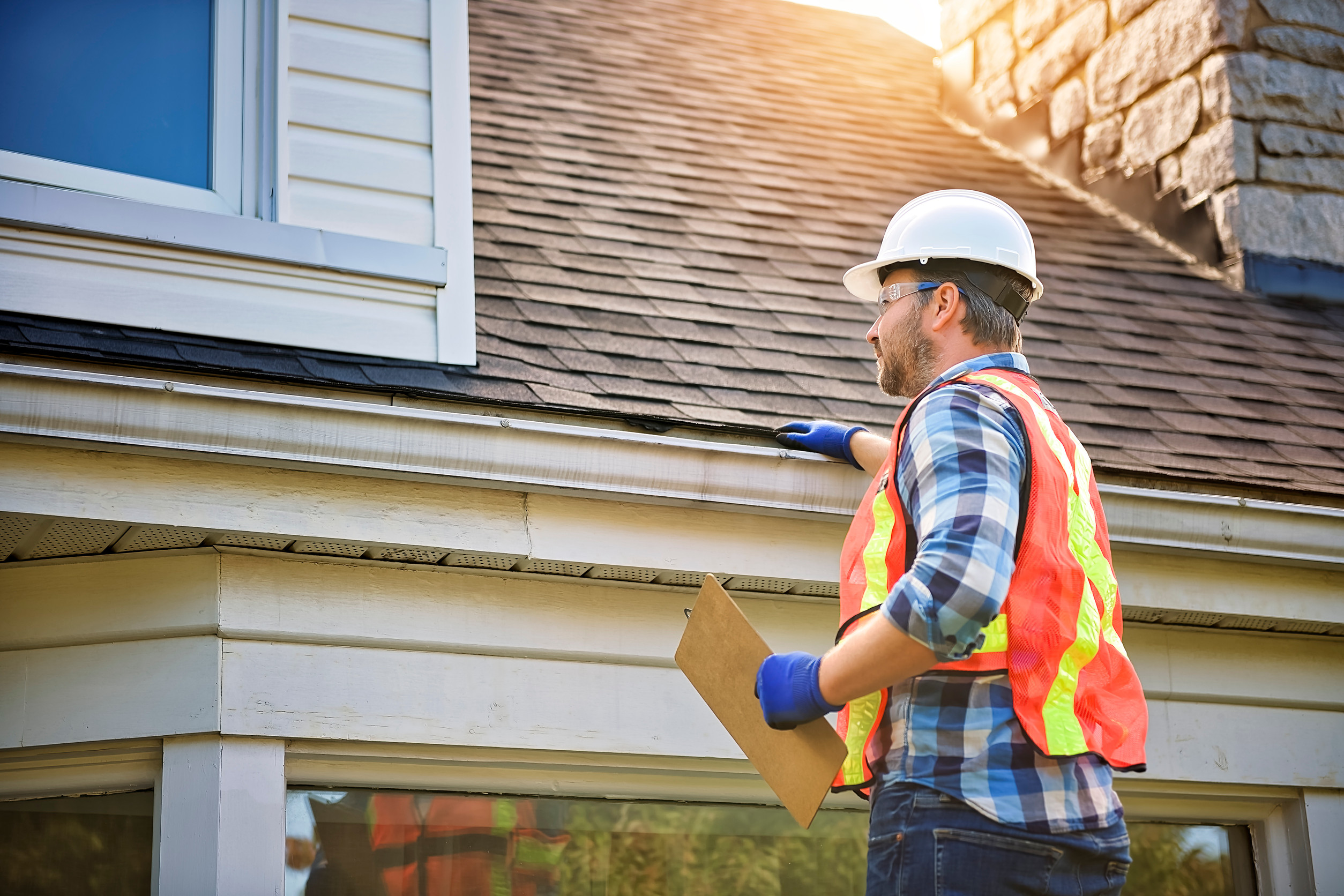How to Choose the Right Roofing Contractor
When it comes to protecting your home or business, few things matter more than the condition of your roof. Whether you need a complete roof replacement, routine maintenance, or an emergency repair, the quality of the contractor you choose will make all the difference. A well-installed roof not only protects your property but also enhances curb appeal and adds value. On the other hand, hiring the wrong contractor can lead to costly mistakes, subpar work, and frustration down the road.
If you are in Tennessee and searching for a reliable roofer, the choices can feel overwhelming. However, with the right approach, you can confidently select a contractor who will deliver superior results. This guide explores exactly how to choose the right roofing contractor—covering qualifications, red flags, local expertise, and why trusted professionals like RC Roofing stand out.
Understand Your Roofing Needs First
Before reaching out to contractors, it helps to assess your needs. Are you dealing with storm damage, looking for a roof replacement, or simply needing maintenance? Different roofing companies may specialize in certain areas.
- Roof repairs: Quick fixes for leaks, flashing damage, or missing shingles.
- Roof replacement: A full tear-off and new installation with materials such as asphalt, metal, or specialty roofing.
- Roof inspections: Essential for spotting hidden damage and extending the lifespan of your roof.
- Commercial vs. residential roofing: Some contractors specialize in one more than the other.
For example, RC Roofing’s roofing services cover both residential and commercial roofing, providing a one-stop solution no matter the scale of your project.
Verify Licensing and Insurance
The first step in narrowing down roofing contractors is checking credentials. A reputable roofer should hold proper licensing for your state or municipality. This demonstrates they meet local requirements and are authorized to work in your area.
Equally important is insurance. Contractors should carry general liability insurance and workers’ compensation. Liability coverage protects your property in case of accidental damage, while workers’ comp shields you from responsibility if an employee is injured on the job. Never hesitate to ask for proof of both.
Look at Local Experience
While national chains may have name recognition, local experience often matters more. A contractor rooted in the community understands the area’s weather patterns, building codes, and common roofing issues. For instance, Tennessee roofs must withstand heavy rain, humidity, and occasional high winds.
A company like RC Roofing has been serving East Tennessee homeowners since 2004, which gives them deep insight into how to build durable roofs suited for this region’s unique climate. Choosing a local roofer also means they will be more accessible if you need warranty support or follow-up inspections.
Check Their Reputation
Thanks to online platforms, researching a roofer’s reputation has never been easier. Read through Google reviews, Better Business Bureau ratings, and testimonials on their website. Look for consistency—do customers praise their professionalism, timeliness, and workmanship?
Avoid contractors with a pattern of complaints about poor communication, hidden costs, or unfinished work. Word of mouth is equally powerful. Ask friends, family, or neighbors who they’ve trusted for their roofing needs.
Review Past Work
A trustworthy roofer should provide examples of previous projects. Ask for a portfolio or visit their roofing gallery to see real-life installations. Photos of past work give you insight into the quality, attention to detail, and range of materials they handle.
This step is especially important if you are considering specialty roofing such as metal panels, architectural shingles, or custom designs. A roofer with limited experience in your preferred material may not deliver the results you expect.
Understand the Warranty
Warranties provide peace of mind. A reliable contractor should offer both manufacturer warranties (covering materials) and workmanship warranties (covering installation errors).
- Manufacturer warranty: Ensures defective materials will be replaced.
- Workmanship warranty: Guarantees the installation meets professional standards.
Ask specifically what the warranty includes, how long it lasts, and what would void it. Be wary of contractors unwilling to stand behind their work.
Evaluate Communication and Professionalism
From your first call or consultation, pay attention to how the contractor communicates. Do they respond promptly? Are they clear about pricing, timelines, and scope of work? Good communication reduces stress and sets the stage for a smoother project.
Professionalism also shows in small details, such as arriving on time for estimates, providing written contracts, and explaining technical terms in a way you can understand. If you feel rushed or pressured, consider that a red flag.
Compare Estimates the Smart Way
Cost is often a deciding factor, but the cheapest estimate is not always the best. When comparing roofing bids:
- Ensure each contractor quotes the same scope of work.
- Ask for a breakdown of labor, materials, and disposal fees.
- Be cautious of unusually low bids that may signal cut corners.
A quality roofer like RC Roofing balances competitive pricing with skilled workmanship. They provide transparent estimates so you know exactly what to expect.
Avoid Storm Chasers and High-Pressure Sales
After major storms, some areas attract “storm chasers”—contractors from out of town looking for quick jobs. They may offer low prices but often disappear after the work is done, leaving no support for future problems.
Instead, prioritize established local companies with a permanent office and proven reputation. Be cautious if a contractor pressures you into signing immediately or requests full payment upfront.
Consider Material Expertise
Not all roofers are equally skilled in every material. If you are considering a metal roof, ensure the contractor has specific experience installing metal panels. The same goes for asphalt, slate, or specialty systems. Material expertise reduces the risk of installation mistakes that could shorten your roof’s lifespan.
Discuss your options during the consultation. A qualified roofer should explain the pros and cons of each material and help you choose the best fit for your budget and style.
The Value of a Free Roof Inspection
Some of the best contractors offer free inspections before providing an estimate. This allows them to identify hidden issues, such as ventilation problems or underlying structural damage. It also gives you a chance to see their thoroughness and professionalism firsthand.
RC Roofing provides detailed inspections, ensuring no issue goes unnoticed. This proactive approach helps prevent surprise costs later in the project.
Long-Term Relationship Matters
Your roof is not a one-time investment; it requires maintenance over the years. Choosing a contractor who values long-term relationships means you’ll always have a trusted partner for repairs, inspections, and eventual replacement.
Companies that have served the community for decades demonstrate stability and commitment, so you can feel confident they will be around to honor their warranties.
Why Choosing the Right Roofer Pays Off
Your roof protects your family, your belongings, and the structure of your home. The right roofing contractor will ensure it performs at its best for decades. By considering licensing, local experience, reputation, warranties, and communication, you can avoid costly mistakes and enjoy peace of mind.
If you are in East Tennessee and want a contractor known for reliability, craftsmanship, and community trust, RC Roofing has proven to be one of the most dependable roofing companies since 2004. From inspections to full roof replacements, their team provides expert care tailored to your needs.
Final Thoughts
Choosing a roofing contractor is one of the most important decisions a homeowner can make. It requires balancing budget considerations with long-term value, and carefully vetting potential contractors to ensure they have the skills and integrity you deserve.
By doing your homework and following these guidelines, you can feel confident that your investment will be protected. A trusted roofing partner like RC Roofing will not only deliver high-quality workmanship but also build a relationship that lasts well beyond installation.
Frequently Asked Questions
1. How do I know if a roofing contractor is legitimate?
Check for proper licensing, insurance, and a physical business address. Look up reviews online and ask for references. A legitimate contractor should also provide written estimates and contracts.
2. Why is it important for a roofer to have insurance?
Insurance protects both you and the contractor. Liability insurance covers accidental property damage, and workers’ compensation ensures you are not responsible if a worker gets injured on your property.
3. Should I always choose the lowest bid for roofing work?
Not necessarily. A very low bid could mean the contractor is cutting corners, using low-quality materials, or skipping important steps. Instead, compare value, reputation, and warranties in addition to price.
4. How long should a roofing project take?
The timeline depends on the size of your roof, the material, and the weather. Small repairs might take a few hours, while a full replacement usually takes one to three days.
5. What type of warranty should I look for?
You should expect both a manufacturer’s warranty (covering the materials) and a workmanship warranty (covering installation errors). Together, these protect your investment.
6. What red flags should I watch for when hiring a roofer?
Beware of storm chasers, contractors who pressure you to sign immediately, demand full payment upfront, or refuse to provide references or proof of insurance.
7. Why is hiring a local roofing contractor better?
Local contractors understand the climate, common roofing issues, and building codes in your area. They’re also more likely to honor warranties and provide reliable follow-up service.
8. Can I install a new roof over my old one?
Sometimes, but it’s not always recommended. While adding a new layer of shingles may save money initially, it can hide underlying problems and reduce the roof’s lifespan.
9. How do I prepare my home before the roofing project starts?
Clear your driveway and yard of vehicles, furniture, or decorations. Protect fragile items inside the home from vibrations, and inform your neighbors about the upcoming work.
10. How do I choose between asphalt shingles and metal roofing?
It depends on your budget, style preferences, and long-term goals. Asphalt shingles are affordable and versatile, while metal roofing offers superior durability and energy efficiency. A reputable contractor can help you decide based on your needs.







